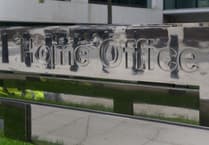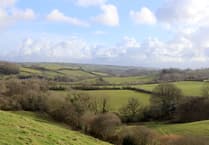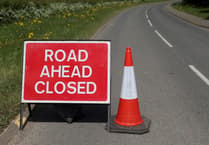BARRY VAUGHAN, of Townsend Close, West Alvington, Kingsbridge, writes:
The full-page story in
your alert publication about objections to the 30-acre solar farm plan, Chronicle, September 4, urges a closer assessment of why the traditional roles of farmers growing food for the common need are having to resort to gaining income from their enterprises in a different way to salvage farm after farm from liquidation.
For some decades now, farmers have been advised by governments to ‘diversify’
in order to make up for low returns not covering expenses – as well as alarm at year-by-year creeping impoverishment.
A first stage could well be categorised as parking six holiday caravans in a field; charging for sundry utility posts crossing fields; the setting up of farmers’ markets; hiring out fields for events and so on. It helps the pocket money and keeps the bankers out of the barns – a bit.
A second stage is now in full swing, recognised by actually selling off stone barns built in better pre-parasite days gone by; using the odd field and rough land to create adventure playgrounds or differing cute visitor attractions.
But now, as, aghast, all can increasingly see, good fields and views are degraded
and swamped with so-called industrial ‘units’, with poison from predictable planning subjugation.
Elsewhere, arrays of solar photovoltaic panels mushroom and, where exposure allows, wind machines reach up to the clouds – much to the irritation of those who have to miss out.
Only a few well-placed farmers can take advantage of these effective revenue-producing ideas in welcome deviation from toiling during all the hours of daylight, hoping the weather will allow a viable crop income and in dread of disease plaguing their stock yet again.
So how are the less buoyant going to choose between loss of livelihoods or the family land?
I suspect an appearance of a third stage of diversification: for nutritious milk cheaper than bottled water, whole chickens little more than two sausage rolls; butter half the cost of ‘spread’.
But where town and city dwellers are able to throw large amounts of farmers’ food into the bin with no scruples, yet at the same time being very shy in handing over a reasonable return for farmers’ near philanthropic seven-day-week efforts, one must expect some further industrialisation of farmland and hardening of hearts concerning stock welfare.
One day this page in your paper will be dwarfed by a jaw-dropping general exposure of what one and all have always assumed to be provided for free – Areas of Outstanding Natural Beauty kept neat just for townies to pursue their pastimes: rambles; treasure hunts; hunting; holding all kinds of races; picnics; paddles in rivers; enjoying the odd ‘zoo’ of farm animals…
Soon, it all may be charged for as farmers tire of going
to town, being faced with a kaleidoscopic culture shock of charges now covering everything from parking – even for the disabled – to the cost of stalls for their good food brought in for the town, as well as other, more obscure licences and taxes for transport, council taxes and inspections.



